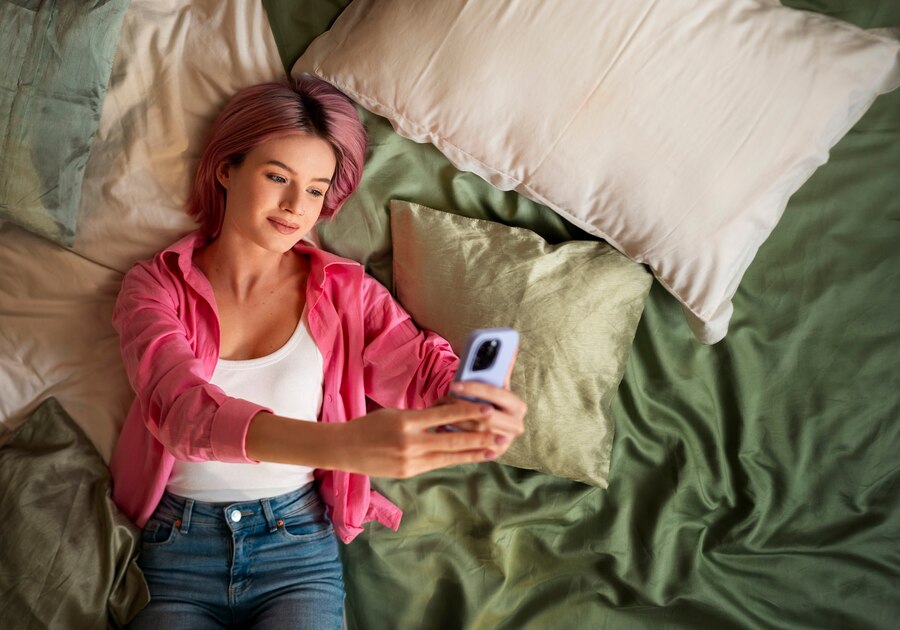
In today’s digitally saturated world, many of us are unknowingly sacrificing our sleep quality due to excessive screen time. From smartphones to tablets and computers, the blue light emitted by these devices can disrupt our natural sleep-wake cycles, making it harder to fall asleep and stay asleep. This phenomenon has led to a growing interest in “digital detox,” a deliberate practice of reducing or eliminating digital device use to improve overall mental and digital well-being, including sleep quality.
Understanding Digital Detox
Digital detox involves taking a break from electronic devices to reduce digital overload, regain mindfulness, and alleviate stress. It’s not just about screen time reduction but also about fostering a healthier relationship with technology to reclaim control over our lives.
The Impact of Digital Devices on Sleep Quality
- Blue Light Disruption: Screens emit blue light, which suppresses melatonin production—a hormone that regulates sleep. Exposure to blue light in the evening confuses our internal clock, making it harder to wind down and fall asleep.
- Cognitive Stimulation: Engaging with digital content stimulates the brain, making it more difficult to relax before bedtime. Social media, emails, and online games can be mentally stimulating, delaying sleep onset and reducing sleep duration.
- Sleep Fragmentation: Even if you manage to fall asleep after using digital devices, the quality of sleep may be compromised. Notifications and alerts can disrupt sleep cycles, leading to fragmented sleep patterns and poorer overall sleep quality.
How Digital Detox Improves Sleep Quality
- Reduced Exposure to Blue Light: By ensuring screen time reduction, especially in the hours leading up to bedtime, individuals can minimize exposure to blue light and support the body’s natural circadian rhythm. This promotes easier initiation of sleep and enhances sleep depth.
- Enhanced Relaxation: Detoxing from digital devices allows the mind to unwind and relax without constant stimulation. This relaxation before bedtime can facilitate a smoother transition into sleep and contribute to more restful sleep throughout the night.
- Improved Sleep Duration: Without the distractions of screens, individuals may find themselves going to bed earlier and getting more hours of sleep. Adequate sleep duration is crucial for cognitive function, mood regulation, and overall health.
Practical Tips for Incorporating Digital Detox for Better Sleep
- Establish a Screen-Free Wind-Down Routine: Create a bedtime routine that excludes screens at least an hour before sleep. Engage in relaxing activities such as reading a book, taking a bath, or practicing meditation.
- Use Night Mode and Blue Light Filters: If complete digital detox is challenging, utilize night mode settings on devices or install blue light filter apps. These tools reduce the amount of blue light emitted, making it easier on the eyes and less disruptive to sleep.
- Create a Sleep-Conducive Environment: Make your bedroom a sanctuary for sleep by keeping it cool, dark, and quiet. Minimize noise and light disruptions, and consider using blackout curtains or eye masks if needed.
Real-Life Benefits of Improved Sleep Quality
1. Enhanced Cognitive Function
Quality sleep supports cognitive processes such as memory consolidation, problem-solving, and decision-making—essential for productivity and overall mental and digital well-being.
2. Mood Regulation and Emotional Resilience
Adequate sleep is linked to better emotional regulation and resilience to stress. Individuals who sleep well are often more emotionally balanced and capable of handling challenges effectively.
3. Physical Health and Immune Function
Sleep plays a critical role in immune function and overall physical health. Chronic sleep deprivation is associated with increased risk of various health conditions, including obesity, diabetes, and cardiovascular disease.
4. Increased Creativity and Innovation
Getting enough restorative sleep helps to enhance creativity and spur innovation. The brain processes and synthesizes information during sleep, leading to improved creative thinking and problem-solving skills. Individuals who sleep well are more likely to come up with novel ideas and solutions.
5. Better Athletic Performance
Athletes and fitness enthusiasts can benefit from improved sleep quality as it aids in muscle recovery, coordination, and overall physical performance. Adequate sleep helps repair tissues, build muscle, and strengthen the body, leading to better performance and reduced risk of injury.
6. Enhanced Interpersonal Relationships
Good sleep is crucial for maintaining healthy relationships. Individuals who are well-rested are generally more patient, empathetic, and better communicators. They are less likely to experience mood swings and irritability, fostering more positive interactions with others.
FAQs
How does blue light from screens affect sleep quality?
Blue light emitted from screens suppresses melatonin production, a hormone that regulates sleep, making it harder to fall asleep and disrupting the sleep-wake cycle.
What are some simple steps to start a digital detox for better sleep?
Begin by establishing a screen-free wind-down routine at least an hour before bedtime, use night mode or blue light filters on your devices, and create a sleep-conducive environment in your bedroom.
Can a digital detox really improve my overall well-being?
Yes, reducing screen time can enhance sleep quality, boost cognitive function, improve mood regulation, and foster better physical health and interpersonal relationships, leading to improved overall well-being.

